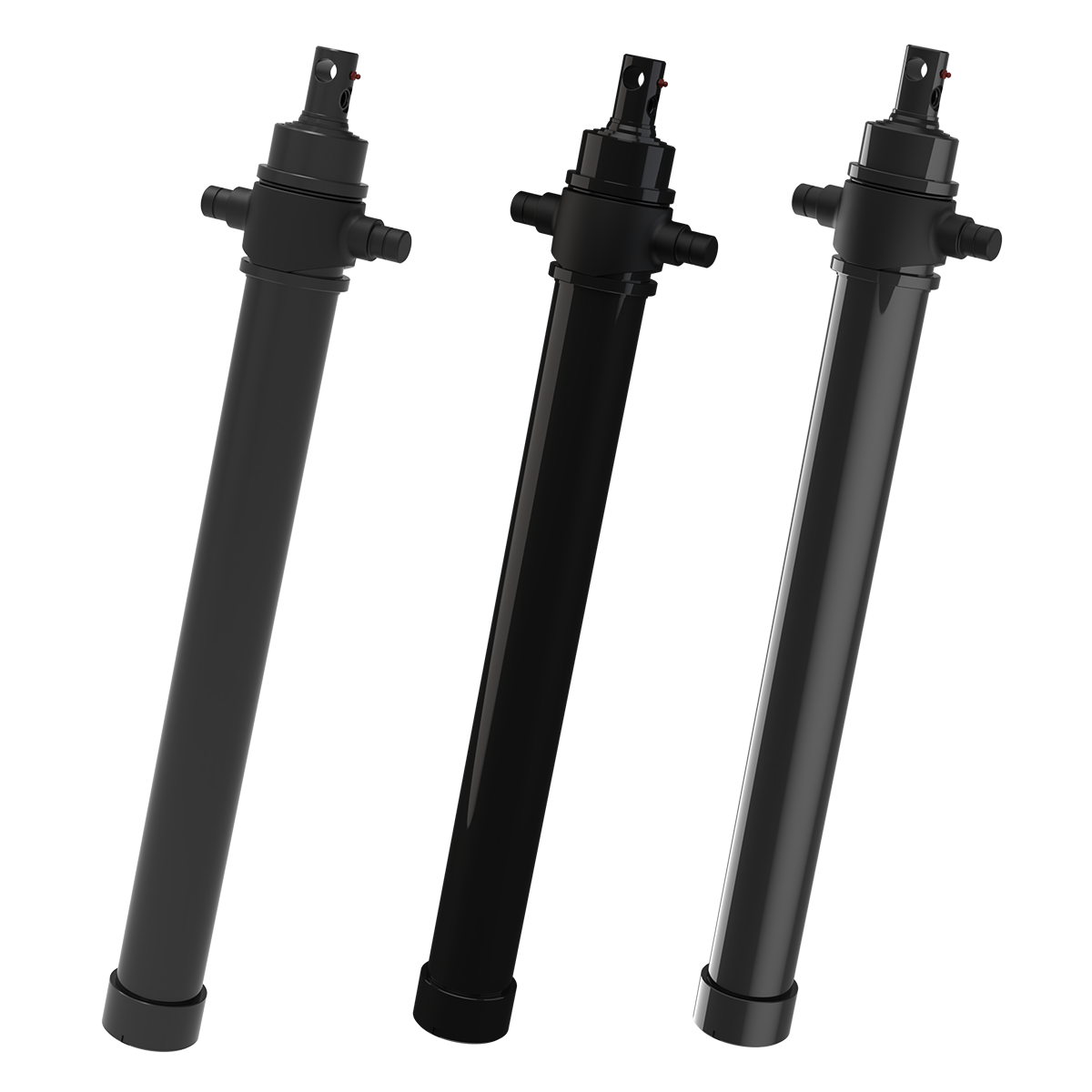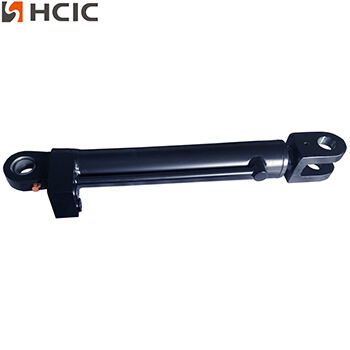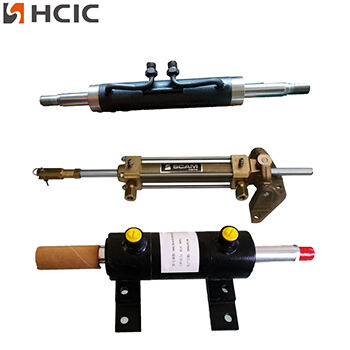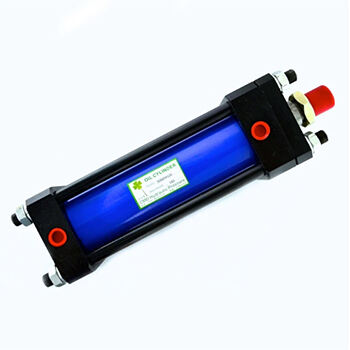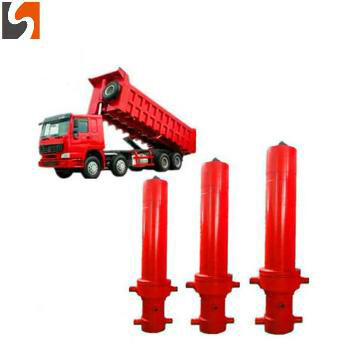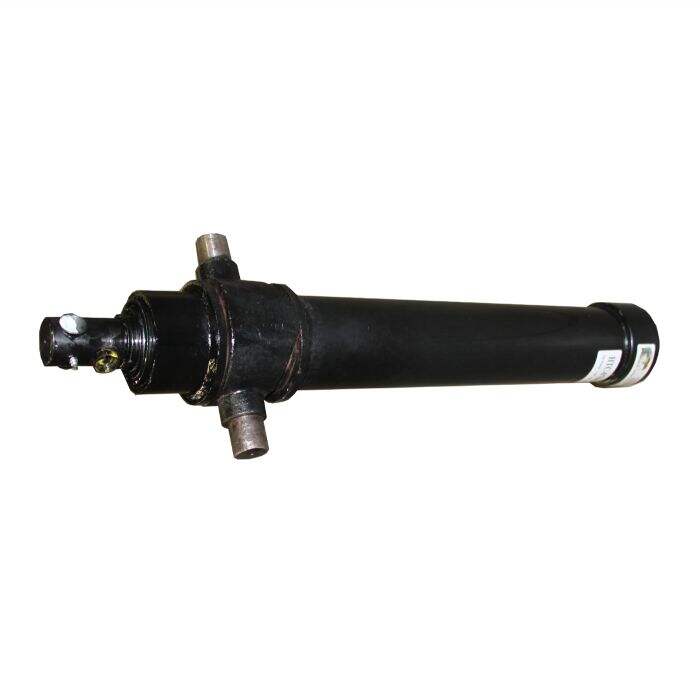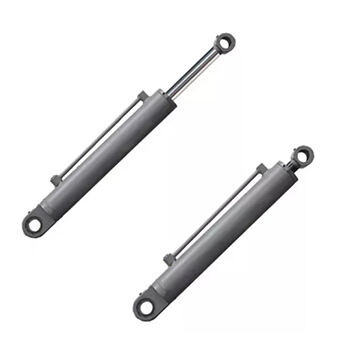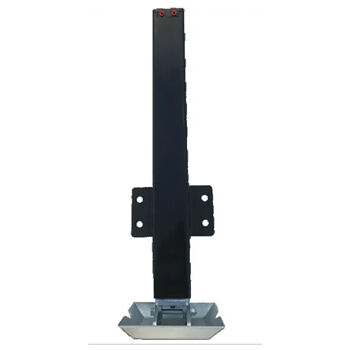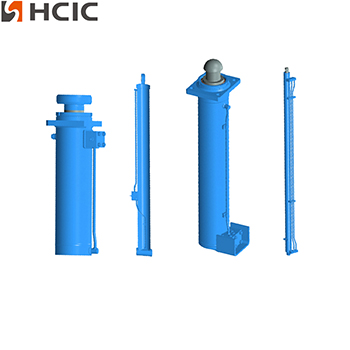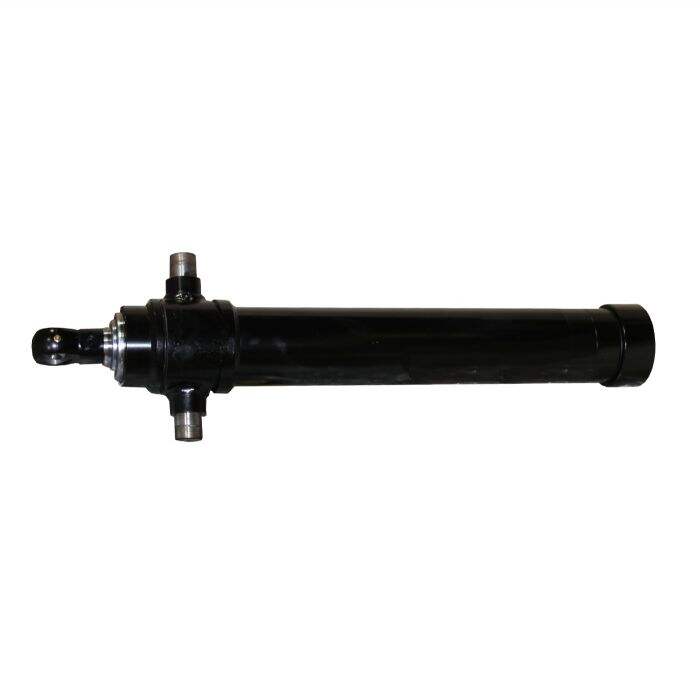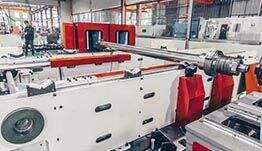Den roll som hydrauliska cylindrar spelar i komprimeringsmaskiner
Den roll som hydrauliska cylindrar spelar i komprimeringsmaskiner
Introduktion
Hydrauliska cylindrar är integrerade komponenter i flera industriella tillämpningar, inklusive komprimeringsmaskiner. Dessa maskiner används inom byggbranschen, avfallsantering och återvinningsindustrin för att komprimera material, vilket gör dem enklare att hantera, transportera och skrotta. Denna uppsats utforskar arbetets principer, komponenter och tillämpningar av hydrauliska cylindrar i komprimeringsmaskiner, vilket ger en omfattande förståelse av deras viktighet och funktionalitet.
Arbetsprinciper för hydrauliska cylindrar
Hydrauliska cylindrar fungerar baserat på Pascal's lag, som säger att tryck som tillämpas på en inspärrad vätska överförs lika i alla riktningar. Denna princip låter hydrauliska system generera betydande kraft med relativt låg inmatningskraft. En hydraulisk cylinder består av flera nyckelkomponenter:
1. Cylinderbarrel: Huvudkroppen på cylindern, som innehåller pistonen och hydrauliska vätskan.
2. Kolben: En rörlig komponent som delar cylindern in i två kammare, skapar en tryckdifferens när hydrauliskt fluid införs.
3. Kolbenspindel: Ansluten till kolben, denna spindel sträcker sig ut ur cylindern för att överföra den genererade kraften till den externa lasten.
4. Slutkapslar: Dessa sluter av cylinderns ändar, förhindrar vätskeutslipp och upprätthåller trycket.
5. Seal: Nödvändiga för att förhindra vätskeutslipp och säkerställa effektiv drift.
När hydrauliskt fluid pumpas in på ena sidan av cylindern skapas det tryck som flyttar kolben, vilket genererar linjär rörelse. Denna rörelse överförs sedan till kolbenspindeln, som utför den önskade mekaniska arbeten.
Komponenter i hydrauliska cylindrar i packningsmaskiner
I packningsmaskiner är hydrauliska cylindrar utformade för att klara höga tryck och tunga laster. De huvudsakliga komponenterna inkluderar:
1. Högkvalitativa material: Cylindrar och pistoner är vanligtvis gjorda av högkvalitativt stål eller andra beståndiga material för att klara de intensiva krafterna som ingår i komprimeringen.
2. Starka sigill: Dessa sigill är utformade för att hantera höga tryck och förhindra vätskeutsläpp, vilket säkerställer en effektiv drift.
3. Förstärkta pistonstavar: Pistonstavar i komprimeringsmaskiner är ofta förstärkta för att klara de tunga lasterna och upprepade rörelser som ingår i komprimeringsprocessen.
4. Avancerade styrsystem: Moderna komprimeringsmaskiner använder sofistikerade styrsystem för att reglera strömmen av hydraulisk vätska, vilket säkerställer exakt och effektiv drift.
Användning av hydrauliska cylindrar i komprimeringsmaskiner
Hydrauliska cylindrar används i olika typer av komprimeringsmaskiner, var och en med specifika tillämpningar:
1. Marktryckare: Dessa maskiner används i byggbranschen för att packa ned marken, skapa en stabil bas för byggnader och infrastruktur. Hydrauliska cylindrar tillhandahåller kraften som behövs för att komprimera marken och säkerställa en fast grund.
2. Sopkompressorer: Inom avfallshantering används hydrauliska cylindrar för att komprimera sopor, minska deras volym och göra dem lättare att transportera och avföra. Denna process bidrar också till återvinning genom att komprimera återvinnbara material.
3. Återvinningskompressorer: Dessa maskiner används för att komprimera återvinnbara material som papper, plast och metall, vilket gör dem enklare att hantera och transportera. Hydrauliska cylindrar tillhandahåller den nödvändiga kraften för att effektivt komprimera dessa material.
4. Industrikompressorer: Används inom olika industrier för att komprimera material som metallskivor, träsplitter och annat industriellt avfall. Hydrauliska cylindrar säkerställer effektiv komprimering, vilket minskar avfallsvolymen och underlättar avförsel.
Fördelar med hydrauliska cylindrar i komprimeringsmaskiner
Hydrauliska cylindrar erbjuder flera fördelar i komprimeringsmaskiner:
1. Hög kraftgenerering: Hydrauliska system kan generera betydande kraft, vilket gör dem idealiska för komprimeringsapplikationer.
2. Noggrann kontroll: Avancerade styrsystem tillåter precist reglering av hydraulisk vätskeflöde, vilket säkerställer exakt och effektiv drift.
3. Längdighet: Hydrauliska cylindrar är utformade för att motstå höga tryck och tunga laster, vilket säkerställer hållbar prestanda.
4. Effektivitet: Hydrauliska system är högtydigt effektiva och omvandlar en stor andel av inmatad energi till nyttigt arbete.
Utmaningar och lösningar
Medan hydrauliska cylindrar erbjuder många fördelar, ställs de också inför vissa utmaningar:
1. Underhåll: Regelmässigt underhåll är nödvändigt för att säkerställa effektiv drift av hydrauliska cylindrar. Detta inkluderar kontroll av vätskeutslag, inspektion av sigill och ersättning av slitagekomponenter.
2. Fluidförorening: Förstörat hydrauliskt fluid kan orsaka betydande skada för systemet. Att använda högkvalitativt fluid och regelbunden filtrering kan minska detta problem.
3. Temperaturvariationer: Extrem temperatur kan påverka prestationen av hydrauliska cylindrar. Att använda lämpliga sigill och fluid som är utformade för specifika temperaturintervall kan hjälpa till att bibehålla effektiviteten.
Slutsats
Hydrauliska cylindrar spelar en avgörande roll i drift av komprimeringsmaskiner, genom att tillhandahålla den nödvändiga kraften för att effektivt komprimera material. Deras förmåga att generera hög kraft, kombinerat med noggrann kontroll och hållbarhet, gör dem idealiska för olika komprimeringsapplikationer. Genom att förstå deras fungerande, komponenter och tillämpningar kan vi uppskatta deras betydelse i modern industriell produktion. Regelmätigt underhåll och hantering av potentiella utmaningar säkerställer att hydrauliska cylindrar fortsätter att fungera effektivt, vilket bidrar till effektiviteten och produktiviteten hos komprimeringsmaskiner. HCIC är en professionell hydraulisk tillverkare, främst inriktad på design, tillverkning, installation, ombyggnad, kalibrering och försäljning av hydrauliska komponenter samt tekniska tjänster. Vi hoppas att vårt produkt kan hjälpa er att spara kostnader och förbättra kvaliteten. För mer information, skicka oss en e-post "[email protected]" eller sök på google efter "HCIC hydraulic".

 EN
EN
 AR
AR
 BG
BG
 HR
HR
 CS
CS
 DA
DA
 NL
NL
 FI
FI
 FR
FR
 DE
DE
 EL
EL
 HI
HI
 IT
IT
 JA
JA
 KO
KO
 NO
NO
 PL
PL
 PT
PT
 RO
RO
 RU
RU
 ES
ES
 SV
SV
 CA
CA
 TL
TL
 IW
IW
 ID
ID
 LV
LV
 LT
LT
 SR
SR
 SK
SK
 UK
UK
 VI
VI
 HU
HU
 TH
TH
 TR
TR
 FA
FA
 MS
MS
 GA
GA
 CY
CY
 KA
KA

